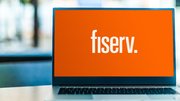News
Software adds audio prompts to kiosks
March 24, 2002
SCOTTSDALE, Ariz. - First Wave Inc.'s Kiosk Communicator software, used for developing interactive kiosk applications, has new tools for creating audio prompts. The feature helps applications meet new federal guidelines for technology purchases, according to a company news release.
Beginning in June, amendments to Section 508 of the Rehabilitation Act of 1973 required that government purchases of information technology be accessible to people with disabilities, the release said.
Kiosk Communicator makes public information kiosks more accessible to people who are blind or visually impaired by incorporating audio prompts with a touchscreen. Braille prompts on the frame of the monitor instruct users to touch the left margin of the screen.
Once touched, the computer operating the kiosk switches to audio mode and speaks the name of each menu item. Users hearing the selection they want lift their finger off the screen to activate it. By running a finger over graphical elements or text, users can hear descriptions spoken by a computer-synthesized voice.
John Glitsos, First Wave's founder and CEO, said that Walt Disney Records was considering adding audio prompts to its kiosks. First Wave is testing a kiosk for Walt Disney Records in Orlando, Fla.
"When companies design products for people with disabilities, everyone benefits. As the U.S. population ages and more people face failing vision and other challenges, it¹s tools like this that will bridge the technology gap and provide all people with equal access to information," Glitsos said.
Founded a decade ago, Scottsdale, Ariz.-based First Wave Inc. designs interactive multimedia kiosk applications. Its applications are used by Kids "R" Us, Whirlpool Corp. and the Petro loyalty program used in Petro truckstops. First Wave's applications run on kiosks equipped with Apple Computer Inc. computers, such as the iMac.
Kiosk Communicator allows developers to create applications that include purchases, information and reports. The software, which runs on Macintosh computers, costs $495, with an additional license fee of $100 charged for each kiosk using an application developed with the software.












